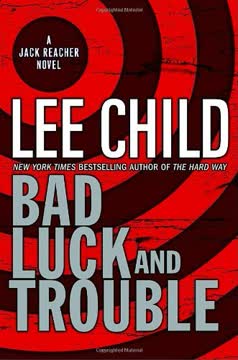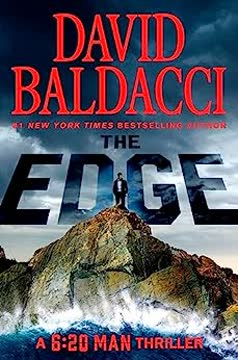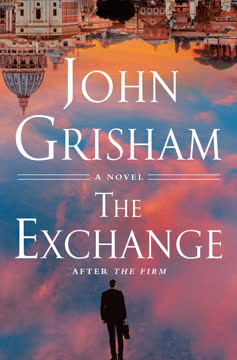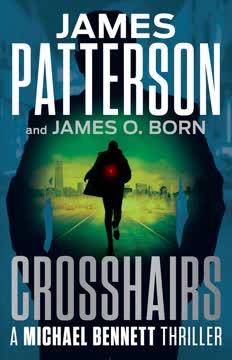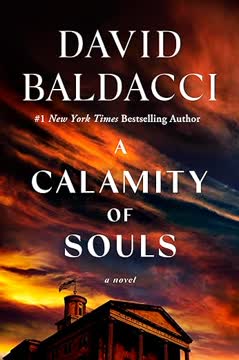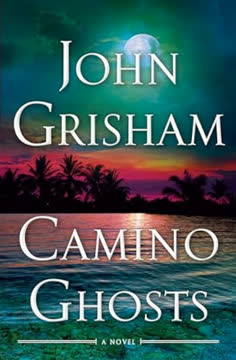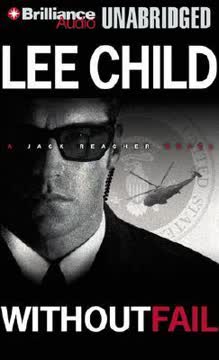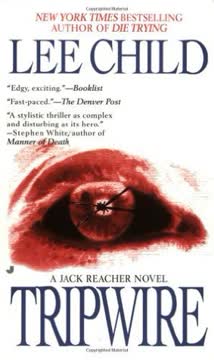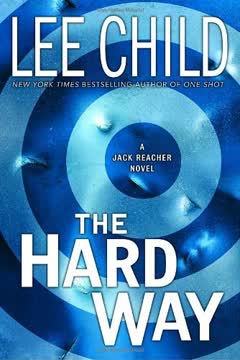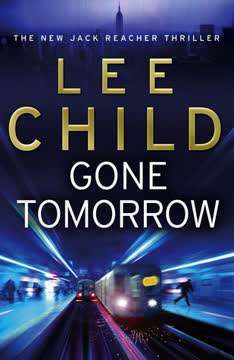Plot Summary
The Car in the Garage
In 1993, Detective Harry Bosch discovers a 1987 Honda Accord in a garage, linked to the disappearance of Marie Gesto. The car's contents suggest foul play, but without a body, the case remains unsolved. Bosch is haunted by the mystery, feeling the weight of the missing woman's fate. This discovery sets the stage for a long-standing obsession with solving the case, highlighting Bosch's relentless pursuit of justice.
A Call from the Past
Years later, Bosch, now in the Open-Unsolved Unit, is drawn back into the Gesto case when Detective Freddy Olivas requests the file. The case is linked to Raynard Waits, a suspect in a high-profile murder. Waits offers to confess to multiple murders, including Gesto's, in exchange for avoiding the death penalty. Bosch is determined to uncover the truth, driven by a need for closure and justice for Gesto's family.
The Confession Offer
Bosch and his partner, Kiz Rider, meet with prosecutor Rick O'Shea to discuss Waits's offer. Waits claims he can lead them to the bodies of his victims. Bosch is skeptical, questioning Waits's motives and the validity of his confession. Despite his reservations, Bosch agrees to participate in the investigation, driven by the need to find Gesto and bring closure to her family.
The Field Trip Begins
The team organizes a field trip to the location where Waits claims Gesto is buried. Bosch, Rider, O'Shea, and others accompany Waits to the site. As they navigate the difficult terrain, tensions rise. Bosch is wary of Waits, suspecting manipulation. The group reaches a clearing where Waits indicates Gesto's grave. Bosch feels a mix of anticipation and dread, knowing the truth is within reach.
A Deadly Escape
As the team prepares to excavate the site, Waits seizes an opportunity to escape. He overpowers Detective Olivas, grabs his gun, and shoots several officers, including Rider. Bosch is left to deal with the aftermath, struggling to save his partner's life. Waits disappears into the woods, leaving Bosch to confront the consequences of the failed operation. The escape becomes a media sensation, and Bosch is sidelined as the department deals with the fallout.
Pratt's Desperate Meeting in Park
Detective Abel Pratt meets with T. Rex and Anthony Garland in Echo Park, demanding more money to disappear and avoid implicating them in the conspiracy to frame Raynard Waits for Marie Gesto's murder. Pratt reveals that Bosch and the FBI are closing in, and he needs to escape. T. Rex refuses, believing O'Shea will protect them. Anthony, however, is visibly agitated, hinting at a more volatile reaction.
Bosch's Revelation and Pursuit
Bosch follows Pratt, suspecting him of orchestrating the conspiracy. He realizes Pratt has been monitoring him and possibly manipulating the investigation from the start. Bosch's pursuit leads him to a confrontation with Pratt, where he learns that Pratt was the mastermind behind the setup, using Maury Swann as a go-between to manipulate Waits into confessing to Gesto's murder.
Confrontation at Swann's Mansion
Bosch and Rachel Walling arrive at Maury Swann's mansion, where they find Pratt threatening Swann. Pratt is desperate to cover his tracks, fearing Swann might betray him. Bosch intervenes, arresting both men. Swann denies any wrongdoing, but Pratt's desperation reveals the cracks in their conspiracy, hinting at the Garlands' involvement.
Pratt's Betrayal and Confession
Under pressure, Pratt confesses to his role in the conspiracy, implicating the Garlands and Swann. He offers to testify against them in exchange for leniency, hoping to protect his family and mistress from the fallout. Bosch is torn between justice and the personal betrayal he feels from Pratt, who was once his trusted supervisor.
Echo Park's Deadly Conclusion
During a sting operation in Echo Park, Anthony Garland, feeling cornered, confronts Pratt in a restroom and shoots him. FBI agents respond, and Anthony is killed in the ensuing gunfire. T. Rex Garland is left devastated, his plans unraveling. Bosch reflects on the cost of justice and the lives lost in the pursuit of truth.
Rider's Return and New Path
Kiz Rider, recovering from her injuries, decides to return to the chief's office, leaving Bosch without a partner. She assures Bosch she'll watch over him from above, offering a sense of protection and continuity. Bosch is left to ponder his future, the weight of the case still heavy on his shoulders, but with a renewed sense of purpose.
Characters
Harry Bosch
Bosch is a seasoned detective with a deep sense of duty and justice. The Gesto case has haunted him for years, driving him to pursue every lead. His dedication to finding the truth is unwavering, even as he faces personal and professional challenges. Bosch's determination is both his strength and his burden, as he grapples with the consequences of past mistakes.
Kiz Rider
Rider is Bosch's partner in the Open-Unsolved Unit. She is intelligent, resourceful, and supportive, providing a steady presence in Bosch's life. Rider's commitment to the job is evident as she works alongside Bosch to solve the Gesto case. Her injury during Waits's escape is a devastating blow, highlighting the dangers of their work.
Raynard Waits
Waits is a cunning and dangerous criminal, offering to confess to multiple murders in exchange for his life. His calm demeanor and detailed knowledge of the crimes suggest a deep-seated pathology. Waits's true identity and motives remain shrouded in mystery, adding to the tension and uncertainty of the investigation.
Rick O'Shea
O'Shea is the assistant district attorney overseeing the Waits case. He is driven by a desire for justice but also by his political ambitions. O'Shea's involvement in the case is complicated by the media attention and the potential impact on his career. His decisions are scrutinized as the investigation unfolds.
Freddy Olivas
Olivas is a detective from Northeast Division, initially seeking Bosch's help with the Gesto file. He becomes a key player in the investigation, but his role is marred by the chaos of Waits's escape. Olivas's actions and decisions are critical to the outcome of the case, highlighting the complexities of police work.
Abel Pratt
Pratt is revealed as the orchestrator of the conspiracy to frame Waits for Gesto's murder. His desperation for money and fear of exposure drive him to confront the Garlands, ultimately leading to his downfall. Pratt's betrayal of Bosch and the department highlights his moral decay and the lengths he's willing to go to protect himself.
T. Rex Garland
T. Rex is a wealthy oil baron who orchestrates the cover-up to protect his son, Anthony. His confidence in controlling O'Shea and the situation is shattered by Pratt's demands and Anthony's actions. T. Rex's downfall is marked by his inability to foresee the consequences of his manipulations.
Anthony Garland
Anthony is consumed by anger and a sense of entitlement, leading him to murder Marie Gesto. His volatile nature and inability to control his emotions culminate in a violent confrontation with Pratt, resulting in his death. Anthony's actions expose the fragility of the Garland family's power.
Maury Swann
Swann is the legal mastermind behind the deal with Waits, using his position to manipulate the justice system. His arrogance and belief in his untouchability are challenged by Pratt's betrayal and Bosch's investigation. Swann's downfall is a testament to the dangers of overconfidence and moral compromise.
Plot Devices
The Confession Proffer
Waits's offer to confess to multiple murders in exchange for avoiding the death penalty is a central plot device. It raises questions about justice, morality, and the value of truth. The proffer forces Bosch and the team to navigate a complex legal and ethical landscape, balancing the need for closure with the risk of manipulation.
The Field Trip
The field trip to locate Gesto's body is a pivotal moment in the narrative. It serves as a catalyst for the story's climax, revealing the characters' motivations and vulnerabilities. The trip's outcome has far-reaching consequences, impacting the investigation and the lives of those involved.
The Surveillance Operation
The FBI's surveillance operation in Echo Park is a pivotal plot device, capturing the Garlands' conversation and Pratt's demands. The operation's success hinges on the technology and coordination of the team, ultimately leading to the unraveling of the conspiracy and the exposure of the Garlands' crimes.
The Restroom Confrontation
The confrontation between Pratt and Anthony Garland in the park restroom serves as the story's climax. The tension and violence of the scene underscore the personal and professional betrayals that have driven the narrative. The confrontation's outcome is a turning point, leading to the resolution of the case and the characters' fates.
Analysis
"Echo Park" by Michael Connelly is a gripping exploration of justice, betrayal, and the relentless pursuit of truth. Through the character of Harry Bosch, the novel delves into the complexities of police work, the moral ambiguities of the justice system, and the personal costs of seeking justice. The narrative weaves together themes of corruption, manipulation, and redemption, highlighting the fragile nature of trust and the consequences of moral compromise. Connelly's storytelling captures the tension and urgency of a high-stakes investigation, offering readers a compelling look at the human condition and the enduring quest for justice.
Last updated:
FAQ
Synopsis & Basic Details
What is Echo Park about?
- Haunted Detective's Cold Case: The novel centers on LAPD Detective Harry Bosch's long-standing obsession with the 1993 disappearance of Marie Gesto, a case that went cold after her car was found abandoned but her body never recovered.
- Unexpected Confession Offer: Thirteen years later, the case is reopened when Raynard Waits, a serial killer caught with dismembered bodies, offers to confess to multiple unsolved murders, including Gesto's, in exchange for avoiding the death penalty.
- Unraveling a Deeper Conspiracy: As Bosch investigates Waits's claims and participates in a tense field trip to the alleged burial site, he uncovers a complex conspiracy involving powerful figures, political ambition, and betrayal that reaches into the highest levels of the justice system and the police department itself.
Why should I read Echo Park?
- Deep Dive into Bosch's Psyche: The book offers a compelling look into Harry Bosch's relentless dedication, his internal struggles with past mistakes, and his unwavering belief that "everybody counts," making it a must-read for fans of the character.
- Intricate and Surprising Plot: Michael Connelly masterfully weaves together multiple timelines and plot threads, presenting a seemingly straightforward confession that unravels into a layered conspiracy with unexpected twists and a high-stakes climax.
- Exploration of Justice and Corruption: Beyond the procedural elements, the novel delves into complex themes of justice, the compromises made within the legal system, and the corrosive effects of power and corruption on individuals and institutions.
What is the background of Echo Park?
- Post-Riot Los Angeles: The narrative is partly set against the backdrop of the 1992 Los Angeles riots, referencing the chaos and lawlessness that made solving crimes like the Daniel Fitzpatrick murder difficult, highlighting a period of societal breakdown.
- LAPD Structure and Politics: The story provides insight into the LAPD's divisional structure versus specialized units like Robbery-Homicide Division (RHD) and Open-Unsolved (OU), and the internal politics and rivalries that affect investigations and career advancement.
- Echo Park Neighborhood: The titular neighborhood serves as more than just a location; it's depicted as a place of transition, marked by layers of immigrant history, gentrification, and hidden spaces (like the tunnels) that mirror the story's themes of hidden truths and changing identities.
What are the most memorable quotes in Echo Park?
- "Everybody counts or nobody counts.": This quote, a core tenet of Harry Bosch's philosophy, encapsulates his dedication to every victim, regardless of their societal standing, and serves as a moral compass throughout the complex and often morally ambiguous investigation.
- "She's right here, Detective... Just like all the others. Right here with me.": Raynard Waits's chilling response when asked about Marie Gesto's location, delivered with chilling calmness, highlights his psychopathy and the dehumanization of his victims, creating a moment of profound horror for Bosch.
- "You fed the wrong dog.": This phrase, referencing a saying about the internal struggle between good and bad impulses, is used by both Waits and Pratt, becoming a central motif that speaks to the choices characters make and the consequences of nurturing their darker natures.
What writing style, narrative choices, and literary techniques does Michael Connelly use?
- Procedural Realism: Connelly employs a highly detailed and authentic portrayal of police work, focusing on investigative procedures, forensic analysis, and the bureaucratic realities of the LAPD and DA's office.
- First-Person Perspective: The narrative is primarily told from Harry Bosch's first-person point of view, allowing readers deep access to his thoughts, instincts, and emotional reactions, particularly his internal monologue regarding the Gesto case and his guilt.
- Layered Timelines and Foreshadowing: The story skillfully weaves between the 1993 investigation and the present day, using subtle callbacks, recurring motifs (like the High Tower, the pawn slip, the name "Reynard"), and seemingly minor details that gain significant meaning later, creating a sense of unfolding revelation.
Hidden Details & Subtle Connections
What are some minor details that add significant meaning?
- The Faded Hair Band: The discovery of Marie Gesto's hair band, faded from blue to yellowish-white after thirteen years exposed to the elements, is a poignant detail confirming her death and the passage of time, but Waits's knowledge of its original color ("It's funny... It used to be blue") is a subtle clue to his manipulation, showing he was fed specific, non-public details.
- The Fan's Direction: In the hidden tunnel room, Bosch notices a stand-up fan pointed towards the back wall, not the entrance. This seemingly insignificant detail reveals the tunnel wasn't just for storage or airing out, but an intake point, blowing air in from a hidden exit, confirming the tunnel's true purpose as a lair and body dump site.
- The "Unsatisfied Customer" Note: The 3x5 card attached to Robert Foxworth's pawn slip, detailing his anger and door-slamming after his heirloom was sold, provides early insight into his volatile temper and potential for violence, subtly linking his rage over a lost possession to his later rage-fueled crimes.
What are some subtle foreshadowing and callbacks?
- The High Tower Apartments: Introduced early as the location where Marie Gesto's car was found, the High Tower is later revealed to be a place Raynard Waits (as Robert Foxworth) knew about from a previous visit, subtly connecting him to the initial crime scene long before his confession.
- The Name "Reynard": Rachel Walling's explanation of "Reynard the Fox" as a trickster figure foreshadows Waits's manipulative nature and his elaborate plan to deceive the investigators, hinting that his confession and actions are part of a larger scheme.
- Pratt's Retirement Dream: Pratt's constant references to his impending retirement and plans for buying property in the Caribbean, initially seeming like harmless office banter, subtly foreshadow his underlying desperation and financial motivation for engaging in the conspiracy.
What are some unexpected character connections?
- Raynard Waits and Robert Foxworth: The revelation that Raynard Waits's true identity is likely Robert Foxworth, a former juvenile ward of the county with a history of anger and instability, provides a crucial link between his past and his later crimes, explaining his choice of victims and his connection to Echo Park.
- Robert Foxworth and the Saxon Family: Foxworth's longest foster care placement was with the Saxon family in Echo Park, providing him with a "home" and a connection to the neighborhood where he was eventually caught, explaining his presence there and the location of his hidden lair.
- Abel Pratt and the Garlands: The shocking discovery that Bosch's seemingly trustworthy supervisor, Abel Pratt, was the orchestrator of the conspiracy, working directly with the wealthy Garland family to frame Waits for Marie Gesto's murder, reveals a deep and unexpected level of corruption within the department.
Who are the most significant supporting characters?
- Kiz Rider: As Bosch's loyal partner, Rider provides crucial support, investigative skills, and a moral counterpoint to Bosch's intensity. Her severe injury during Waits's escape is a major emotional turning point and highlights the personal cost of the investigation.
- Rachel Walling: The FBI agent brings a fresh perspective, profiling expertise, and a complex personal connection to Bosch. Her insights into Waits's psychology and her role in the final confrontation are vital to solving the case.
- Abel Pratt: Initially appearing as a typical supervisor nearing retirement, Pratt's eventual reveal as the mastermind behind the conspiracy makes him a central antagonist, representing the insidious nature of corruption and betrayal within the system Bosch trusts.
- Raynard Waits (Robert Foxworth): Though the primary suspect, Waits becomes a supporting character in the larger conspiracy plot. His chilling confession, escape, and eventual death drive much of the narrative and reveal the depths of the manipulation at play.
Psychological, Emotional, & Relational Analysis
What are some unspoken motivations of the characters?
- Waits's Need for Control: Beyond avoiding the death penalty, Waits's motivation for confessing and participating in the field trip was likely the prospect of escape and a return to his "foxhole," his hidden lair, representing a deep psychological need for control over his environment and fate, even in the face of capture.
- Pratt's Financial Desperation: While not explicitly stated until late in the book, Pratt's willingness to orchestrate a complex conspiracy and risk his career and freedom points to a significant underlying motivation, likely financial strain exacerbated by personal issues (implied mistress, potential divorce) and the desire to secure his lavish retirement dream.
- Bosch's Guilt and Obsession: Bosch's relentless pursuit of the Gesto case is fueled not just by a sense of justice but also by deep-seated guilt over the perceived failure to solve it earlier. The false Saxon entry intensifies this, making him emotionally vulnerable to manipulation and driving his actions, sometimes recklessly.
What psychological complexities do the characters exhibit?
- Waits's Psychopathy and Symbolism: Waits (Foxworth) exhibits classic psychopathic traits: lack of empathy, manipulation, and a chilling detachment from his horrific crimes. His use of the "Reynard the Fox" motif and the "foxhole" lair suggests a complex internal world where he views himself as a cunning predator, possibly linked to his traumatic childhood as a ward of the state.
- Bosch's "True Detective" Identity: Bosch's identity is inextricably linked to his work and his moral code ("Everybody counts"). The Gesto case, unsolved for so long, represents a failure that challenges this identity, leading to intense internal conflict and a blurring of professional duty and personal obsession.
- Pratt's Double Life: Pratt's ability to maintain the facade of a respected, retiring supervisor while secretly engaging in criminal conspiracy reveals a profound psychological split, driven by a sense of entitlement and a willingness to compartmentalize his actions for personal gain.
What are the major emotional turning points?
- Bosch Learning of the Saxon Entry: The moment Olivas reveals the Robert Saxon entry in the Gesto file is a devastating emotional blow for Bosch, triggering intense guilt and the belief that his and Edgar's oversight allowed Waits to continue killing for thirteen years. This guilt significantly impacts his demeanor and judgment during the initial interview with Waits.
- Rider's Injury and Decision: Kiz Rider being shot during Waits's escape is a shocking and emotionally charged event. Her subsequent struggle with the trauma, her admission of freezing, and her decision to leave the Open-Unsolved Unit mark a significant shift in her character arc and the dynamics of her partnership with Bosch.
- Pratt's Breakdown at Swann's: The confrontation at Maury Swann's mansion, culminating in Pratt's emotional breakdown when confronted with the potential exposure of his mistress and family, is the turning point where the conspiracy begins to unravel, revealing the human cost and desperation behind the elaborate scheme.
How do relationship dynamics evolve?
- Bosch and Rider's Partnership: Their relationship is tested by the dangers of the Waits case and Rider's injury. While their professional bond remains strong, Rider's decision to leave the unit signifies a change in their dynamic, moving from partners in the trenches to a supportive relationship with Rider watching over Bosch from a distance.
- Bosch and Pratt's Trust and Betrayal: Bosch initially trusts Pratt as his supervisor, occasionally confiding in him. The revelation of Pratt's betrayal shatters this trust, transforming their relationship into one of bitter antagonism and highlighting the profound impact of corruption on personal bonds.
- Bosch and Rachel Walling's Connection: Their relationship deepens through shared danger and intellectual connection (profiling Waits, analyzing the conspiracy). However, Rachel's concern over Bosch's recklessness and her need for safety ultimately create a rift, suggesting their paths may diverge despite their connection.
Interpretation & Debate
Which parts of the story remain ambiguous or open-ended?
- The Full Extent of the Conspiracy: While Pratt confesses and implicates the Garlands and Swann, the precise details of the deal, including the exact amount paid and whether Rick O'Shea was a knowing participant or merely a beneficiary of legal contributions, remain somewhat open to interpretation, relying heavily on Pratt's self-serving testimony.
- Waits's True Identity: While the DCFS file points strongly to Robert Foxworth, the possibility remains that this was just another alias in a string of identities, leaving his absolute birth name and early history prior to entering the system open to some ambiguity.
- Rachel Walling's Future with Bosch: The ending leaves the future of Bosch and Rachel's relationship uncertain. While they share a deep connection, her concerns about his dangerous nature and her need for a stable life suggest their relationship may not endure, leaving their story open-ended.
What are some debatable, controversial scenes or moments in Echo Park?
- Bosch's Actions Leading to the Park Shooting: Bosch's decision to pursue Anthony Garland to Echo Park without immediate backup, his potential manipulation of the situation by revealing his knowledge of Garland's gun permit (as suggested by Rachel), and his role in creating the confrontation that led to multiple deaths are highly debatable and raise questions about his adherence to procedure and his personal motivations.
- Pratt's Attempted Drowning of Swann: The scene where Pratt holds Maury Swann underwater is brutal and shocking. Whether Pratt genuinely intended to kill Swann or was merely staging a dramatic threat (perhaps knowing Bosch was watching) is open to interpretation and debate, reflecting the ambiguity of Pratt's character and the depths of his desperation.
- Bosch Entering the Tunnel Alone: Despite warnings and backup arriving, Bosch's decision to enter the dark, confined tunnel where a known serial killer was holding a hostage is highly controversial from a tactical standpoint, highlighting his reckless determination but also his unwavering commitment to saving the victim.
Echo Park Ending Explained: How It Ends & What It Means
- The Conspiracy Unraveled: The ending reveals that Raynard Waits did not kill Marie Gesto. The murder was committed by Anthony Garland, who, with his father T. Rex Garland, orchestrated a conspiracy with Abel Pratt and Maury Swann to frame Waits for the crime. Pratt, facing exposure, attempts to extort more money from the Garlands.
- Violent Climax in Echo Park: A sting operation in Echo Park leads to a confrontation between Pratt and Anthony Garland. Garland, cornered and enraged, shoots and kills Pratt before being killed by FBI agents. This violent conclusion brings a chaotic end to the conspiracy and the lives of the key perpetrators.
- Justice Achieved, But at a Cost: Marie Gesto's murder is finally solved, and the true killer is dead. However, this justice comes at a high price: the deaths of Detective Olivas and Deputy Doolan, the severe injury of Kiz Rider, and the exposure of corruption within the LAPD and DA's office. Bosch is left grappling with the fallout, his role in the events, and the complex nature of the justice he pursues. The ending reinforces the theme that pursuing truth often leads to uncomfortable revelations and that the line between hero and anti-hero can be blurred.
Review Summary
Echo Park receives mostly positive reviews, with readers praising its complex plot, unexpected twists, and character development. Many consider it one of the best in the Harry Bosch series, highlighting Connelly's masterful storytelling and attention to detail. Readers appreciate the authenticity of the police procedural elements and the exploration of Bosch's personal struggles. Some note that the book's first half can be slow, but the second half picks up pace significantly. Overall, fans find it a compelling and satisfying addition to the series.
Harry Bosch Universe Series
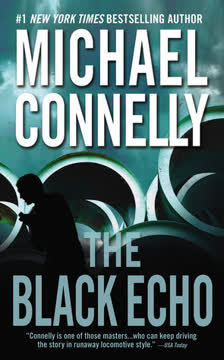
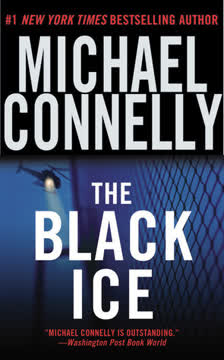
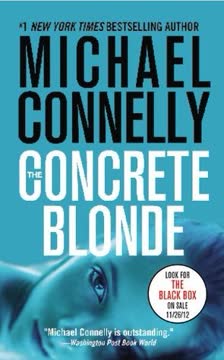
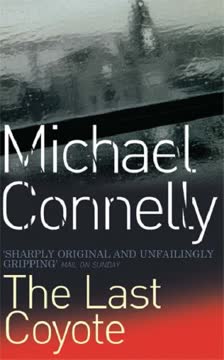
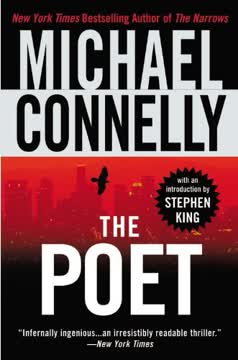
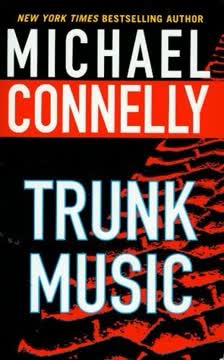
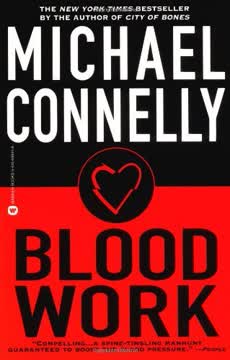
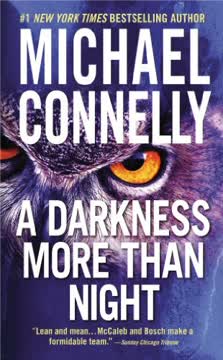
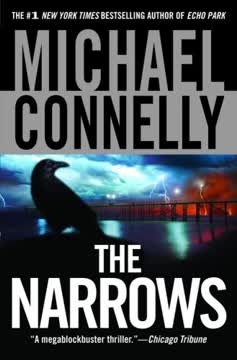
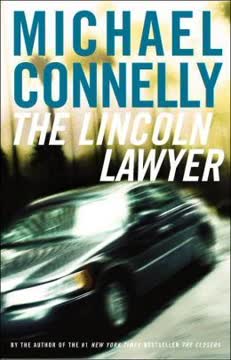
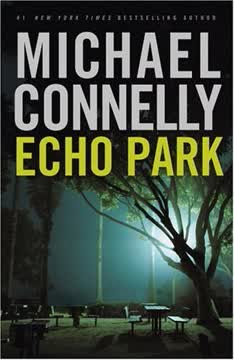
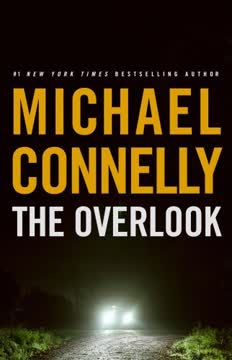
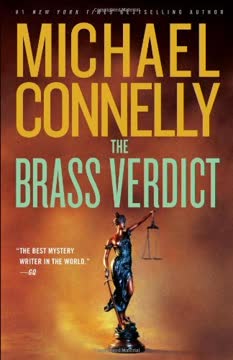
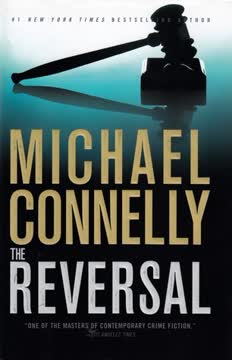
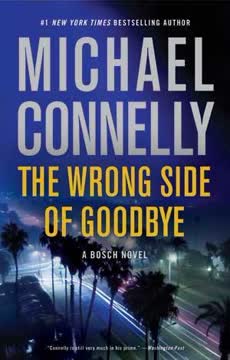
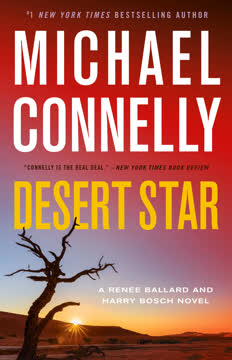
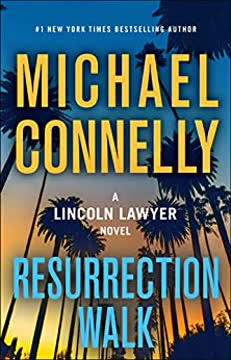
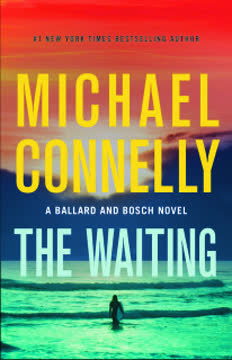
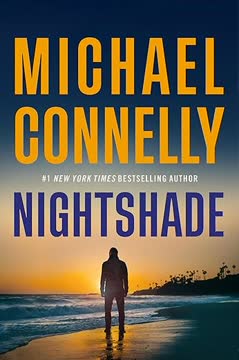
Similar Books
Download PDF
Download EPUB
.epub digital book format is ideal for reading ebooks on phones, tablets, and e-readers.
